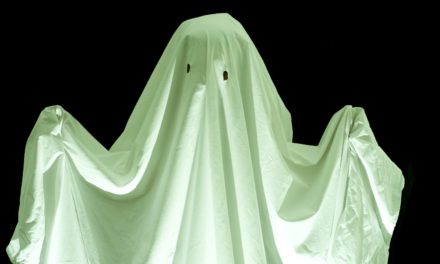Can retail giants American Apparel, Abercrombie & Fitch and L’Oreal insist on appearance-oriented hiring and employee standards? Can your employer?
Although American Apparel states that applicants don’t need prior retail experience, they require prospective employees to submit photos, stating applicants must be “able to present themselves in a way that impresses and inspires our customers.” Further, employees who can no longer wear AA clothing are subject to termination based on size.
Similarly, Abercrombie & Fitch’s district manager issued a strict hiring memo stating A&F must “have the best looking & best-styled associates working.” One result of this corporate culture -- employee Riam Dean, whose prosthetic arm was deemed unfit under A&F’s “Look Policy” was banished to the stock room. She sued and won. Another result – a class action suit alleging A& F hired “a disproportionately white sales force” and discouraged “minorities from even applying for jobs."
Is “lookism” a new strategy for sexism, racism and age and disability discrimination? In multiple jurisdictions, these standards have been tested.
In a landmark beauty industry case, senior L’Oreal executive Jack Wiswall told regional sales manager Elisa Yanowitz she needed to fire a dark-skinned sales associate he considered “not attractive” and replace her with “somebody hot." When Wiswall later learned Yanowitz hadn’t fired the associate, he complained and pointed at a “very sexy” and “young attractive blonde girl" saying, “get me one that looks like that."
After Yanowitz repeatedly refused to comply with an order she considered discriminatory, Wiswall and Yanowitz’s immediate supervisor Dick Roderick criticized her in front of peers, wrote memos severely criticizing her performance and solicited negative information about her from her employees. Yanowitz, whose region included stores in Alaska and Washington, had ten years of “above expectation” performance ratings and was named L’Oreal’s Regional Sales Manager of the Year for her demonstrated leadership and loyalty, found herself fired. She sued.
Although Yanowitz lost in district court, California’s Supreme Court ruled in her favor, ruling a male executive's order to fire a female employee he considered unattractive sexual discrimination – unless L’Oreal held male employees to similar standards. They further ruled Wiswall and Roderick’s actions and Yanowitz’s firing retaliatory.
My prediction, Courts will see lookism for what it is – discrimination disguised. As an example, when Southwest Airlines defended its policy that only attractive women could be hired as flight attendants and ticket agents, they argued that female sex appeal was a bona fide occupational qualification (BFOQ) under Title VII because Southwest wanted to project a "sexy image and fulfill its public promise to take passengers skyward with love.'" According to the Court ruling, Southwest Airlines didn’t exist in an industry in which "vicarious sex entertainment is the primary service provided."
United, Continental, Northwest and Ozark Airlines lost similar suits – as those of us who fly know. After all, what matters more – does the flight attendant correctly handle safety situations and can the sales associate sell or does she fit a certain look – to which passengers and customers may not even relate?
Latest posts by Lynne Curry, Ph.d., SPHR (see all)
- Holidays: Paying for Parties, Job Searching, & Bonuses - November 29, 2023
- Workplace Conflict: Dueling Employees - July 3, 2023
- You Owe it to Yourself to Blow the Whistle: Washington - June 19, 2023












There are many ism’s. I have applied to “high fashion” companies only because I qualified for the jobs. I was rejected each time and provided with one excuse after another. While I find this trend of having to have worked in a particular industry in order to get a job, I truly find it incomprehensible of why one needs prior high fashion industry experience to be an HR supervisor in a distribution center. I did go in for one interview with a specialist who thought I met the requirements, but that’s as far as it went. I believe the reason was that I did not look the part.
At another company, the head of marketing only wanted me (Director) to interview the marketing applicants because I looked more professional than others that interviewed.
Now many years later, having lost my job due to bankruptcy, I don’t get very far because I believe it is ageism and unemployedism.
I just read a terrific article on leaders accepting differences in people instead of always going to their comfort zone of hiring the same people who think like they do, look like they do, have the same experience as they do, etc. Without diversity, where does the change come from. Clones just think, act, look and behave just like the leader. With a global economy, without it, you will see a business that will not be able to compete with the other diverse companies.